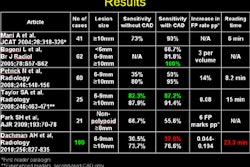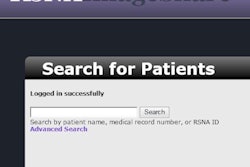The Blue Cross/Blue Shield Association (BCBSA) has submitted a proposal to Congress and the U.S. Department of Health and Human Services that the insurer says will save the government more than $300 billion in healthcare costs in the Medicare system over the next 10 years -- in part by requiring the preauthorization of advanced imaging.
The action plan urges Congress to manage "potentially harmful and costly technologies with a high risk of overuse or misuse, such as advanced imaging services" by using prior authorization and by educating beneficiaries about safety concerns and alternative diagnostic options. The BCBSA also suggests that radiology benefit managers have shown success in the private sector and "could make a substantial impact in public healthcare programs as well."
In addition, the association asks the government to expand value-based payment in Medicare; make care coordination available to all Medicare beneficiaries; encourage Medicare beneficiaries to use high-quality providers; support the use of evidence-based medicine; enact malpractice reform; increase the use of generics; and attack healthcare fraud and abuse.
Both the Access to Medical Imaging Coalition (AMIC) and the Medical Imaging and Technology Alliance (MITA) reacted quickly to the preauthorization proposal, calling upon Congress to reject it.
AMIC noted that the plan comes on the heels of Blue Cross/Blue Shield of Delaware's failed attempt to impose prior authorization requirements on patients. Following intense scrutiny of the quality of Blue Cross/Blue Shield of Delaware's delivery of care under its prior authorization program for cardiac nuclear imaging, the insurer was ordered by the Delaware Insurance Commissioner to scrap prior authorization and instead use the American College of Cardiology's Imaging in FOCUS (Formation of Optimal Cardiovascular Utilization Strategies) program.
Preauthorization just doesn't work as a cost-cutting measure, said Tim Trysla, executive director of AMIC.
"There is not a single peer-reviewed, evidence-based study that shows prior authorization programs for medical imaging achieve any real cost savings," Trysla said in a statement. "However, multiple studies have shown that alternatives to prior authorization like physician-developed appropriateness criteria and decision-support tools effectively drive appropriate imaging use without compromising patient access."




















